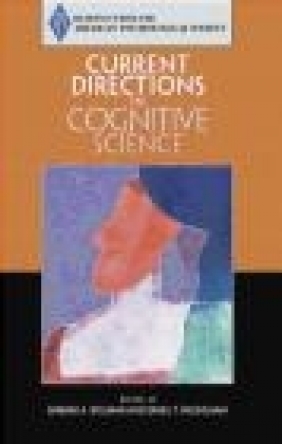Current Directions in Cognitive Science
Barbara A. Spellman, Association for Psychological Science, Daniel T. Willingham
Current Directions in Cognitive Science
Barbara A. Spellman, Association for Psychological Science, Daniel T. Willingham
- Producent: Prentice Hall
- Rok produkcji: 2004
- ISBN: 9780131919914
- Ilość stron: 192
- Oprawa: Miękka
Niedostępna
Opis: Current Directions in Cognitive Science - Barbara A. Spellman, Association for Psychological Science, Daniel T. Willingham
This new and exciting Association for Psychological Science Reader, edited by Barbara A. Spellman and Daniel T. Willingham, both of University of Virginia, includes over 20 articles that have been carefully selected for the undergraduate audience, and taken from the very accessible Current Directions in Psychological Science journal. These timely, cutting-edge articles allow instructors to bring their students real-world perspective-from a reliable source-about today's most current and pressing issues in cognitive science. For details or to find out how to get these readers for FREE when purchased with Pearson Psychology texts, please contact your local Pearson sales representative.VISUAL PERCEPTION. Mack, A. (2003). Inattentional Blindness: Looking Without Seeing. Behrmann, M. (2000). The mind's eye mapped onto the brain's matter. Martino, G., & Marks, L. E. (2001). Synesthesia: Strong and weak. MEMORY. Garry, M., & Polaschek, D. L. L. (2000). Imagination and memory. McNally, R. J.(2003). Recovering memories of trauma: A view from the laboratory. Wells, G. L., Olson, E. A., & Charman, S. D. (2002). The confidence of eyewitnesses in their identifications from lineups. Brown, V. R., & Paulus, P. B. (2002). Making group brainstorming more effective: Recommendations from an associative memory perspective. ASSOCIATIVE LEARNING AND CAUSAL REASONING. Oehman, A., & Mineka, S. (2003). The malicious serpent: Snakes as a prototypical stimulus for an evolved module of fear. Thompson, S. C. (1999). Illusions of control: How we overestimate our personal influence. Spellman, B. A., & Mandel, D. R. (1999). When possibility informs reality: Counterfactual thinking as a cue to causality. Norenzayan, A., & Nisbett, R. E. (2000). Culture and causal cognition. SOLVING PROBLEMS AND MAKING DECISIONS. Klahr, D., & Simon, H. A. (2001). What have psychologists (and others) discovered about the process of scientific discovery? Siegler, R. S. (2000). Unconscious insights. Mellers, B. A., & McGraw, A. P. (2001). Anticipated emotions as guides to choice. Yaniv, I. (2004). The benefit of additional opinions. LANGUAGE. Saffran, J. R. (2003). Statistical language learning: Mechanisms and constraints. Landauer, T. K. (1998). Learning and representing verbal meaning: The latent semantic analysis theory. Ferreira, F., Bailey, K. G. D., & Ferraro, V. (2002). Good-enough representations in language comprehension. Zwaan, R. A. (1999). Situation models: The mental leap into imagined worlds. Minds and Brains. Miller, G. A., & Keller, J. (2000). Psychology and neuroscience: Making peace. Roser, M. & Gazzaniga, M. S. (2004). Automatic brains-Interpretative minds. Povinelli, D. J., & Bering, J. M. (2002). The mentality of apes revisited. Nickerson, R. S. (2001). The projective way of knowing: A useful heuristic that sometimes misleads.
Szczegóły: Current Directions in Cognitive Science - Barbara A. Spellman, Association for Psychological Science, Daniel T. Willingham
Tytuł: Current Directions in Cognitive Science
Autor: Barbara A. Spellman, Association for Psychological Science, Daniel T. Willingham
Producent: Prentice Hall
ISBN: 9780131919914
Rok produkcji: 2004
Ilość stron: 192
Oprawa: Miękka
Waga: 0.26 kg























